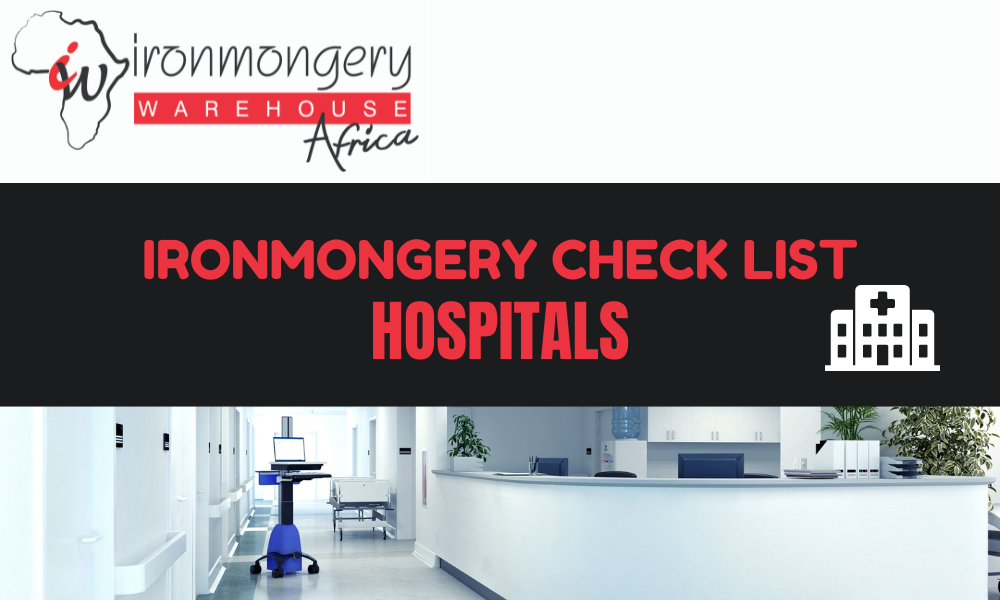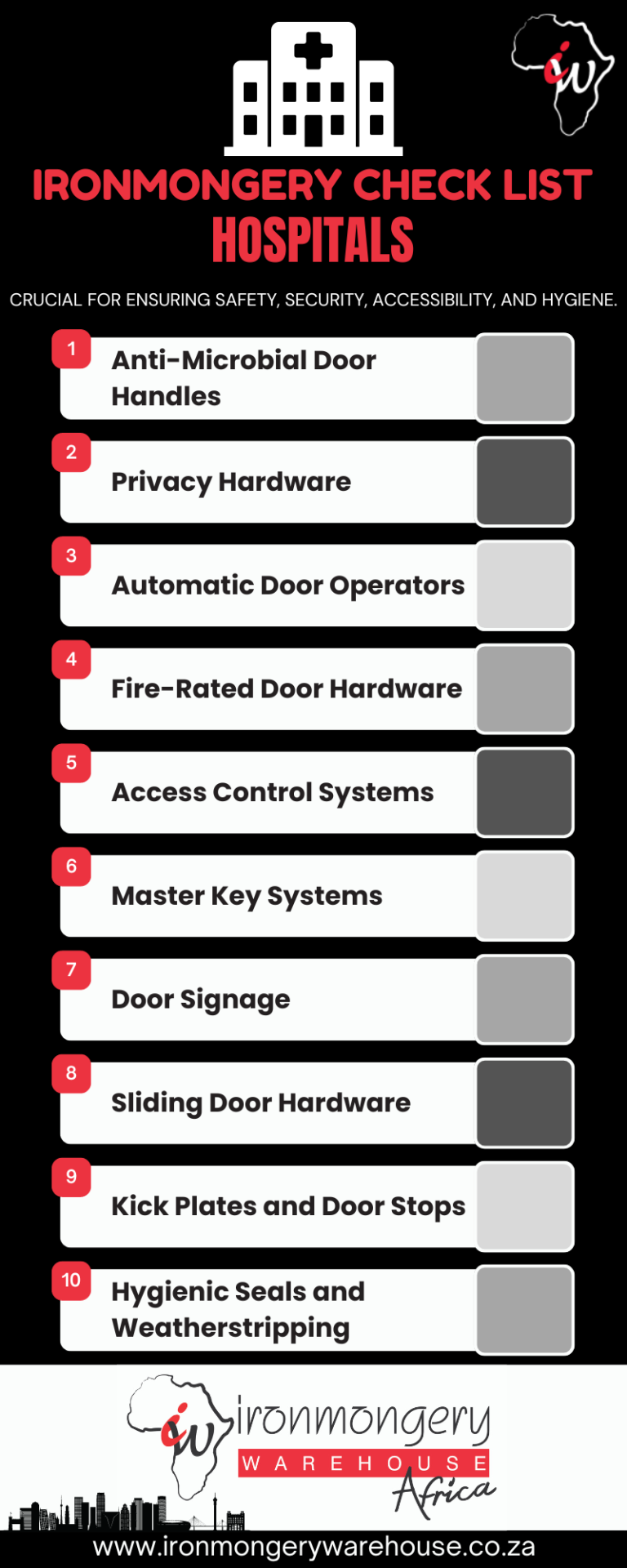
Hardware for doors in hospitals and healthcare facilities is crucial for ensuring safety, security, accessibility, and hygiene. Here are some essential types of door hardware commonly used in hospitals and healthcare facilities:
- Anti-Microbial Door Handles: Hospital door handles made from anti-microbial materials help reduce the spread of infections by minimizing the growth of bacteria and germs on frequently touched surfaces.
- Privacy Hardware: Privacy hardware, including privacy latches or deadbolts, ensures patient privacy and confidentiality within examination rooms, treatment areas, and patient rooms.
- Automatic Door Operators: Automatic door operators provide touchless entry and exit, reducing the risk of cross-contamination and improving accessibility for patients, visitors, and staff, especially those with mobility challenges or disabilities.
- Fire-Rated Door Hardware: In compliance with fire safety regulations, fire-rated door hardware such as fire-rated locks, hinges, and door closers are essential in hospitals and healthcare facilities. These components help prevent the spread of fire and smoke, protecting patients, staff, and valuable equipment, and comply with fire safety requirements by ensuring that fire doors close properly.
- Access Control Systems: Access control systems help manage entry and exit, monitor visitor traffic, and enhance security within healthcare facilities. Key card readers, biometric scanners, or keypad entry systems provide secure access management, ensuring only authorized personnel have access to restricted areas.
- Master Key Systems: Master key systems are essential for managing access to multiple areas within hospitals, such as patient wings, staff-only zones, and utility rooms. These systems allow authorized personnel, such as nurses, doctors, and maintenance staff, to access designated areas using a single master key while maintaining security and privacy.
- Door Signage: Clear signage indicating entrance, exit, escape routes, restrooms, or occupancy status helps patients, visitors, and staff navigate healthcare facilities easily.
- Sliding Door Hardware: Sliding doors with durable tracks, rollers, and handles are commonly used in hospitals and healthcare facilities to maximize space efficiency and improve accessibility in tight or crowded areas.
- Kick Plates and Door Stops: Kick plates and door stops protect doors from damage caused by foot traffic, carts, or equipment passing through doorways. They enhance the lifespan of doors and contribute to the overall maintenance of healthcare facilities.
- Hygienic Seals and Weatherstripping: Hygienic seals and weatherstripping help create a tight seal between doors and frames, preventing the ingress of dust, moisture, or pathogens. These components contribute to infection control and maintain a clean and sanitary environment within healthcare facilities.
By selecting and installing the right door hardware, hospitals and healthcare facilities can ensure the safety, security, accessibility, and hygiene of their environments, promoting the well-being and recovery of patients while providing a safe and supportive workplace for healthcare professionals.

Click on the links below to read more on Market Vertical ironmongery check lists:
Industrial Warehousing Retail Centres Commercial offices Hotels Schools Student Accomodation residential developmentsContact us today to book a consultation with one of our Ironmongery Specifiers to assist you in finishing your project.
Email us on enquiry@ironware.co.za or call us on 011 444 8677 to speak with one of our Architectural Ironmongery Specification Specialists.
CONTACT US